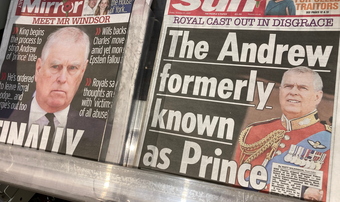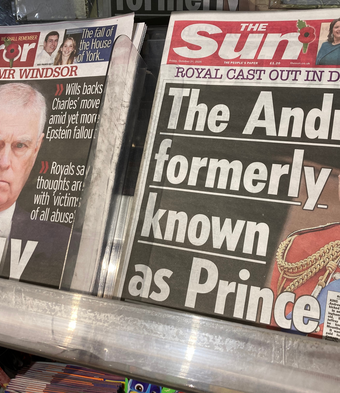Looking Ahead: Online Safety and Free Speech
We’re continuing our mini-series looking at the key challenges facing the new Prime Minister and the government from 5-6 September when Parliament returns.
Today, we’ll look at:
Online Safety and Free Speech
What is the Online Safety Bill?
This is the Government’s flagship legislation to make the internet safer. It’s a massive Bill with various clauses.
What’s the problem?
The fundamental problem identified by some critics is that the Online Safety Bill (OSB) poses a threat to freedom of expression online. The bill introduces a category of content that is ‘legal but harmful’. Sweeping powers would be given to the Secretary of State to decide what’s allowed and what’s not. Technology companies have already shown themselves willing to take down views they disagree with. This bill will fuel this tendency.
For Christians, it’s easy to see why this is an issue. For orthodox Christians who hold to the historic teaching on issues like human sexuality and gender, what it means to be human, and so on, it’s not hard to see how our position could be construed as ‘harmful’. What impact will this have on churches and live streams, for example?
What’s the Government doing?
Right now, the Online Safety Bill is paused because of the ongoing leadership contest to become the next Prime Minister. Prior to this, the culture minister Nadine Dorries insisted that the Bill strengthens free speech. This is based on various free speech clauses in the legislation. However, the free speech clauses do not amount to much.
Both Mr Sunak and Ms Truss have said they will pause the Bill and re-examine it if they are elected leader. A lot also depends on the person chosen to be the Secretary of State for Digital, Culture, Media and Sport. If they are a supporter of free speech, it’s even more likely the Bill will be changed, either by removing the legal but harmful definition, or by strengthening the free speech clauses so when it comes to deciding what content is removed, the presumption is always to favour free speech.
What else could be done?
From CARE’s perspective, we would support changes to the Bill to ensure free speech is protected. Secondly, there is another piece of legislation – The Higher Education (Freedom of Speech) Bill - which needs to be progressed. This would, at the least, send a signal to universities about the importance of upholding freedom of expression.
What’s a Christian response?
We should recognise that the intention behind the Online Safety Bill is good. Its primary aim is to make the internet a safer place for young people. In this digital age and when young people are accessing harmful content like pornography, this is a noble intention. For years, CARE’s supported age verification on all online pornography. This is a measure in the Bill, and we should support it and urge MPs to put pressure on the Government to implement it as soon as possible.
More broadly, when it comes to free speech, we need to make sure that how we speak into society follows the pattern of Jesus Himself. John tells us that He came from the Father, full of grace and truth (John 1:14). That means we need to hold fast to our convictions, but that we also need to communicate in a civil way. This ‘convicted civility’ is a key way we witness to Jesus.
Further reading
Free speech: what does the law actually say? | CARE
Online Safety Bill Q&A | CARE






